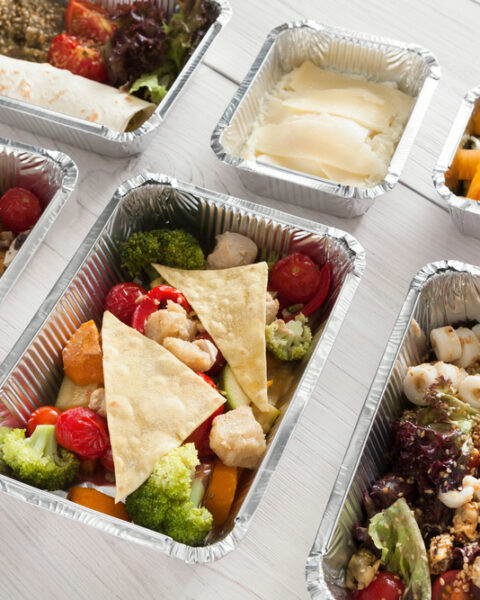Creating a zero-waste kitchen doesn’t have to be expensive or overwhelming. With a few simple changes, you can reduce waste and save money at the same time. By focusing on reusables, mindful shopping, and creative storage solutions, you’ll find that sustainability can fit comfortably within your budget. Embracing a zero-waste lifestyle in your kitchen is not only good for the environment but also for your wallet.
Contents
- 1 Switch to Reusable Shopping Bags
- 2 Buy in Bulk
- 3 Use Glass Jars for Storage
- 4 Compost Food Scraps
- 5 Shop at Farmers Markets
- 6 Plan Your Meals
- 7 Use Cloth Towels Instead of Paper Towels
- 8 Make Your Own Cleaning Products
- 9 Choose Reusable Produce Bags
- 10 Repurpose Food Jars and Containers
- 11 Opt for Beeswax Wraps
- 12 Grow Your Own Herbs
- 13 Freeze Leftovers for Later Use
- 14 Reuse and Refill Containers
- 15 Practice Mindful Shopping
- 16 More From RetailShout
- 17 15 Affordable Aldi Finds to Keep Your Pantry Full This November
- 18 12 Essential Costco Buys Under $20
Switch to Reusable Shopping Bags
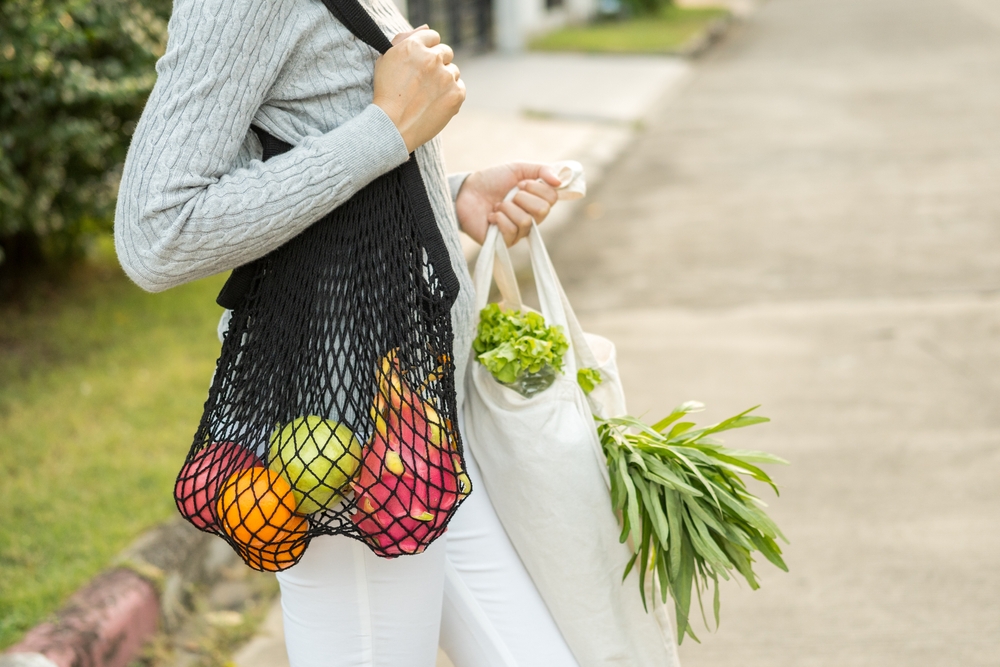
Ditching plastic bags in favor of reusable shopping bags is an easy and cost-effective first step toward a zero-waste kitchen. These bags are not only sturdier but also reduce the amount of single-use plastic that ends up in landfills. Many grocery stores even offer incentives for bringing your own bags, saving you a little extra each time you shop. Investing in a few good-quality reusable bags will quickly pay off, both environmentally and financially.
Buy in Bulk
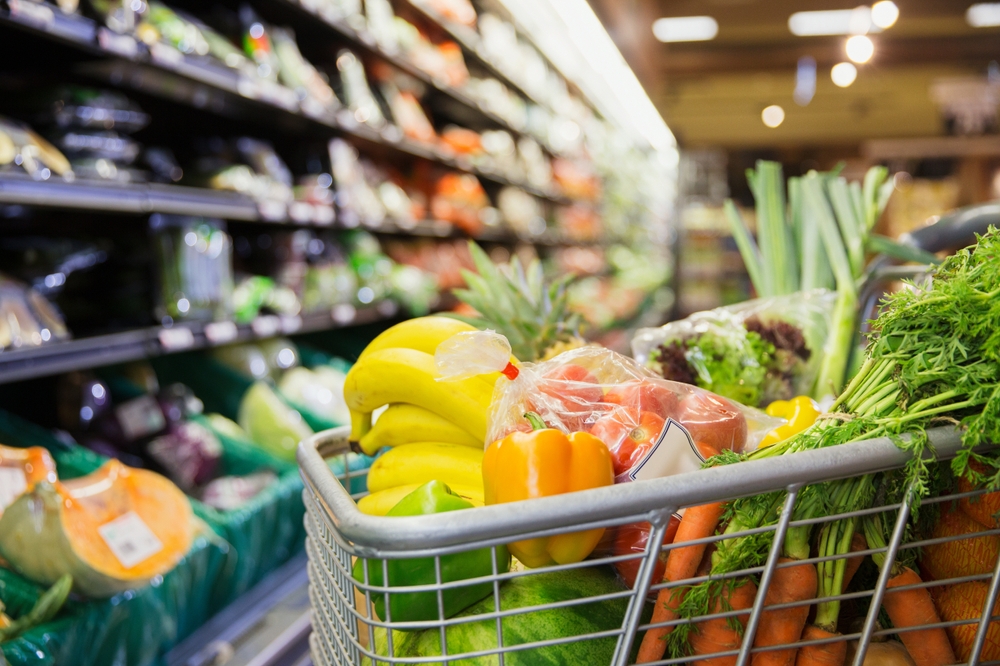
Buying in bulk can significantly reduce packaging waste and often saves you money in the long run. Opt for bulk bins at your local grocery store for items like grains, nuts, and spices, bringing your own containers to avoid single-use plastic bags. This approach not only cuts down on waste but also allows you to buy only what you need, reducing food waste as well. Bulk shopping is a win-win for your wallet and the planet.
Use Glass Jars for Storage
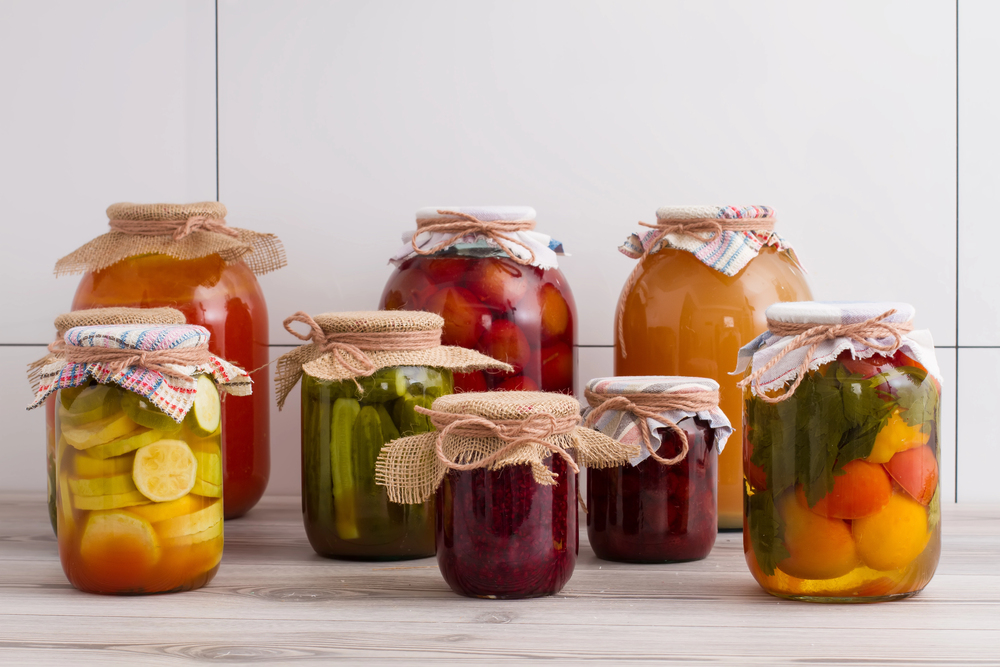
Repurpose glass jars from items like pasta sauce or pickles to store dry goods, leftovers, or even homemade snacks. Glass jars are a sustainable alternative to plastic containers and are easy to clean and reuse. By using what you already have, you avoid the need to purchase new storage containers, keeping both costs and waste low. Plus, glass jars add a charming, organized look to your pantry and fridge.
Compost Food Scraps
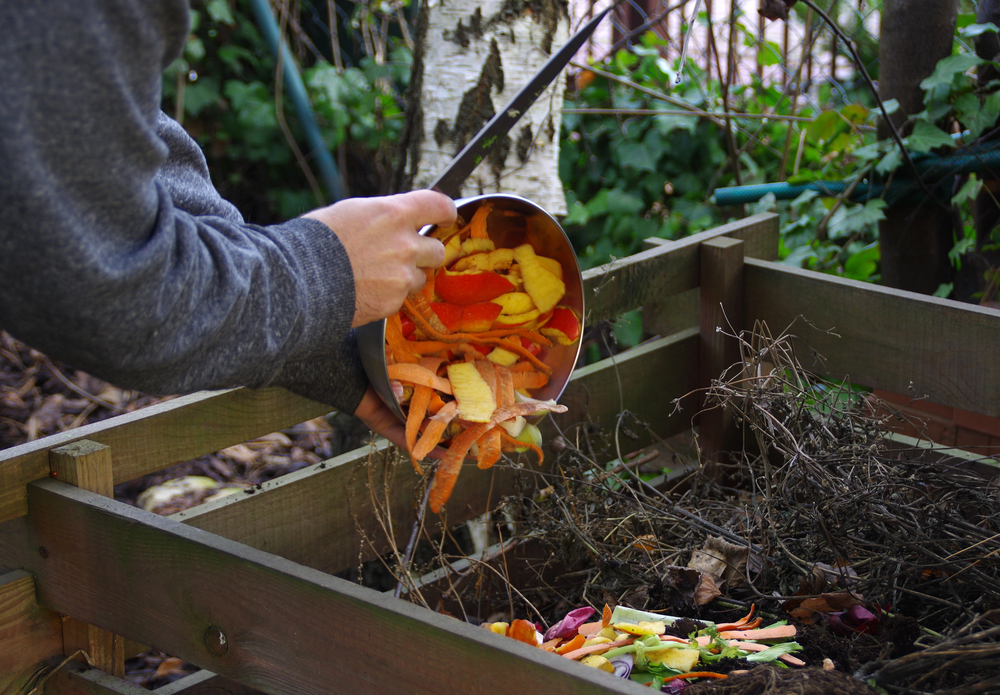
Composting is an excellent way to reduce kitchen waste while creating nutrient-rich soil for your garden. Instead of tossing food scraps like vegetable peels, coffee grounds, and eggshells in the trash, start a compost bin in your yard or find a local composting service. Composting reduces the amount of waste that ends up in landfills and helps you contribute to a more sustainable food cycle. Best of all, it’s free or very low-cost to start.
Shop at Farmers Markets
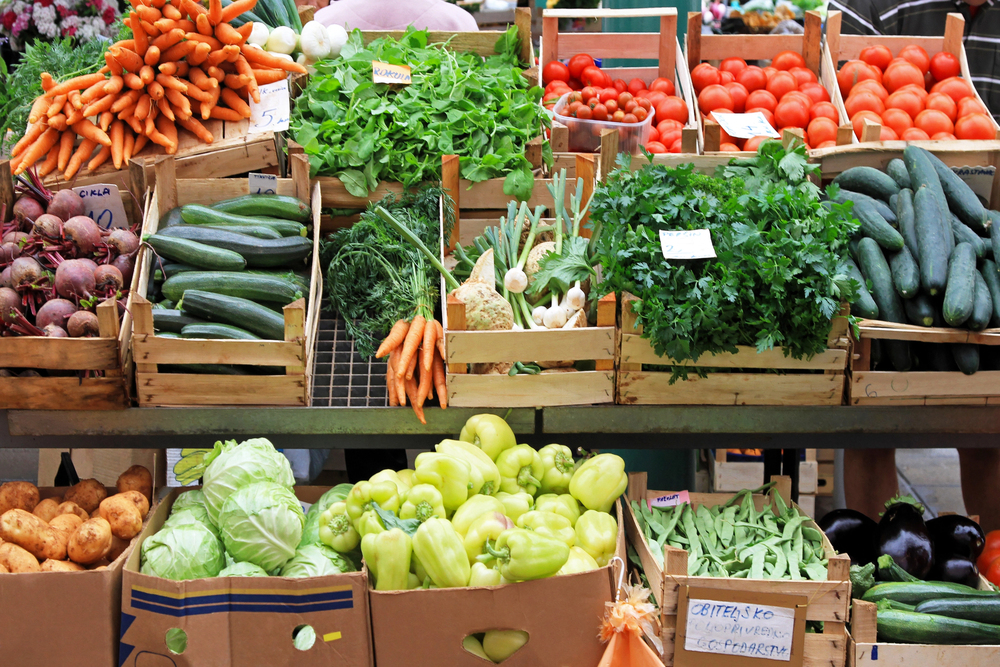
Supporting local farmers markets is a great way to reduce waste and eat seasonally on a budget. Farmers markets often have fresh produce without the excess packaging found in grocery stores, and you can bring your own bags to further cut down on waste. Additionally, buying directly from farmers can be cheaper than purchasing from retail stores, allowing you to get quality, fresh food while supporting local agriculture.
Plan Your Meals

Meal planning is an effective way to minimize food waste and save money. By planning your meals for the week, you can create a shopping list that ensures you buy only what you need, avoiding impulse purchases and excess. This approach helps you use ingredients more efficiently, reducing the chances of food spoiling before you can use it. Meal planning is a simple but powerful tool in maintaining a zero-waste kitchen on a budget.
Use Cloth Towels Instead of Paper Towels

Replacing paper towels with washable cloth towels is a small change that can make a big impact on reducing waste. Cloth towels can be reused countless times, cutting down on the need to buy disposable paper products. Over time, this switch will save you money and reduce the amount of paper waste you produce. Keep a stack of cloth towels handy for spills, cleaning, and drying dishes.
Make Your Own Cleaning Products

Creating your own cleaning products from simple ingredients like vinegar, baking soda, and essential oils is both budget-friendly and eco-friendly. Homemade cleaners are free from harsh chemicals and can be stored in reusable containers, reducing the need for single-use plastic bottles. Not only will you save money by making your own cleaners, but you’ll also reduce waste and limit your exposure to toxins in your kitchen.
Choose Reusable Produce Bags
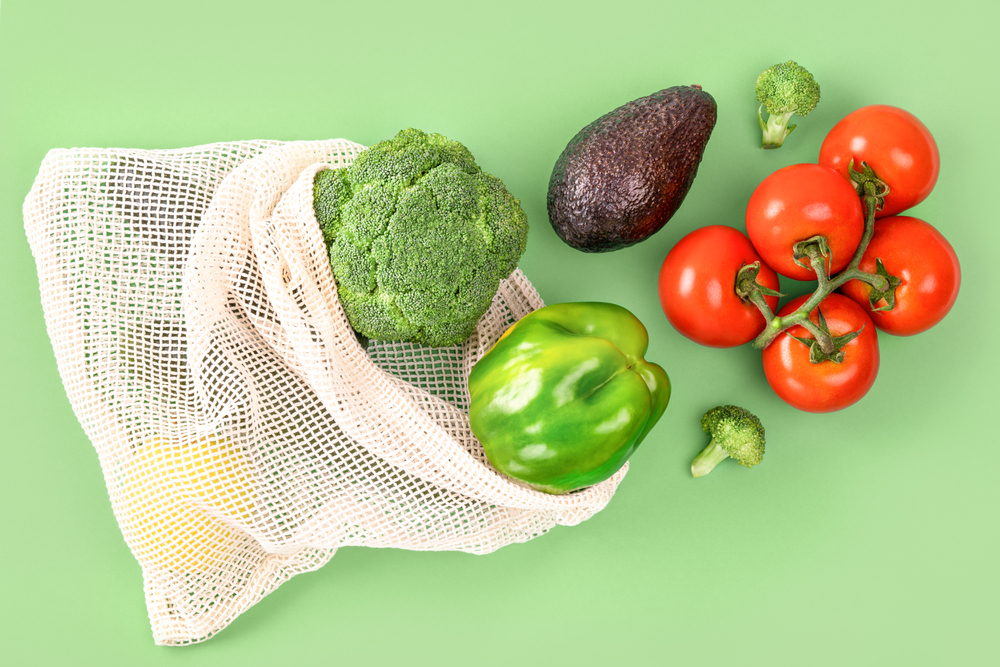
Investing in reusable produce bags is an easy way to cut down on the plastic waste generated by grocery shopping. These lightweight, mesh bags are perfect for fruits, vegetables, and bulk items, replacing the flimsy plastic bags often provided at stores. Reusable produce bags are durable, washable, and can be used repeatedly, making them a cost-effective addition to your zero-waste kitchen arsenal.
Repurpose Food Jars and Containers
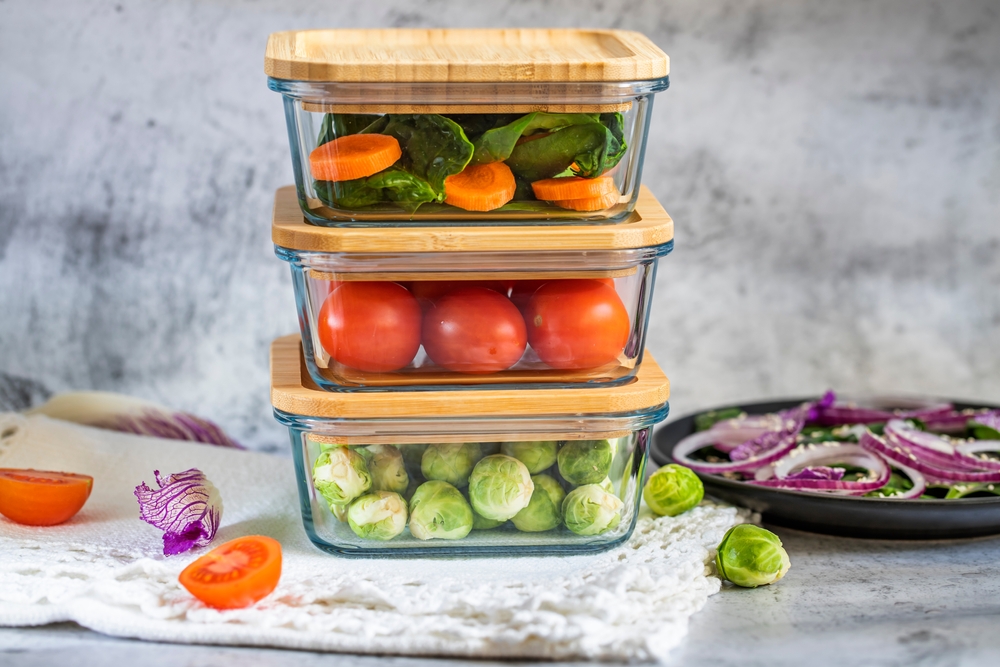
Instead of discarding jars and containers from store-bought foods, repurpose them for storage, organization, or even as planters. This practice not only reduces waste but also saves you from purchasing new containers. Whether it’s using a jar to store leftovers or a tin can as a pencil holder, repurposing is a creative way to extend the life of items you already own. It’s an easy, zero-cost step toward a more sustainable kitchen.
Opt for Beeswax Wraps
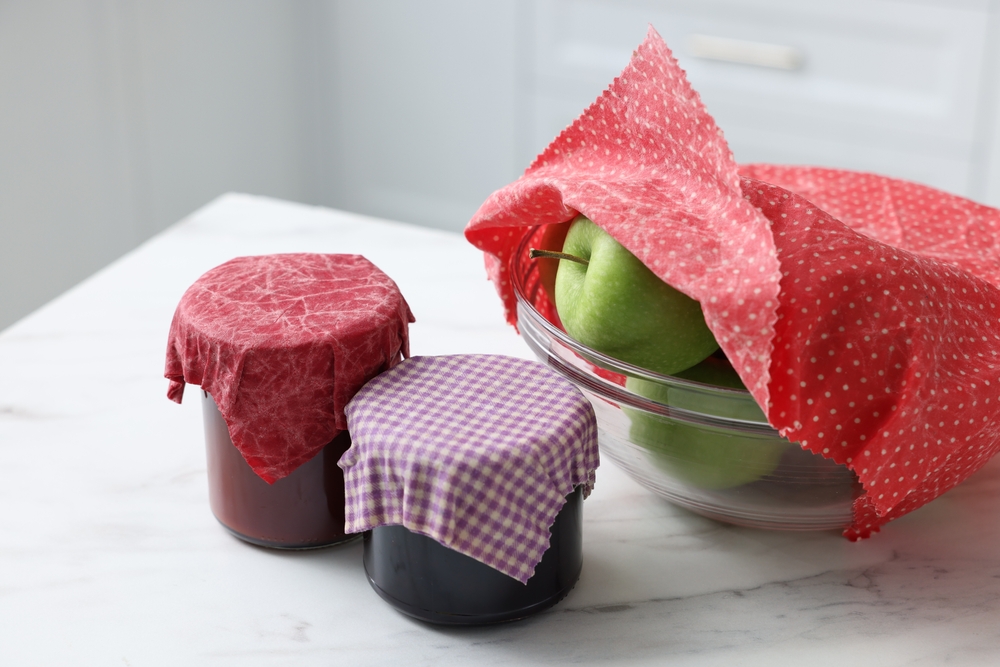
Beeswax wraps are a fantastic alternative to plastic wrap and can be used to cover bowls, wrap sandwiches, or store produce. These wraps are reusable, washable, and compostable, making them an eco-friendly option for food storage. Though they may have a higher upfront cost compared to plastic wrap, beeswax wraps last much longer and help reduce your kitchen’s reliance on single-use plastics.
Grow Your Own Herbs
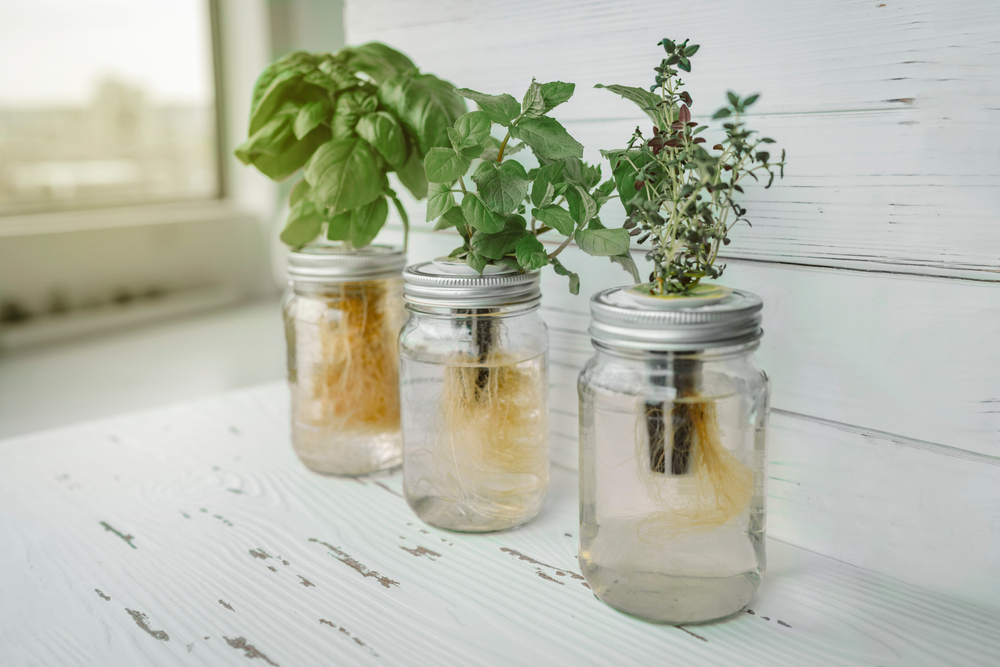
Growing your own herbs is a budget-friendly way to add fresh flavor to your meals while reducing waste. By cultivating a small herb garden on your windowsill or balcony, you can avoid the plastic packaging that often comes with store-bought herbs. Freshly picked herbs also taste better and can save you money over time compared to purchasing them regularly. Plus, growing your own herbs is a satisfying and eco-friendly hobby.
Freeze Leftovers for Later Use
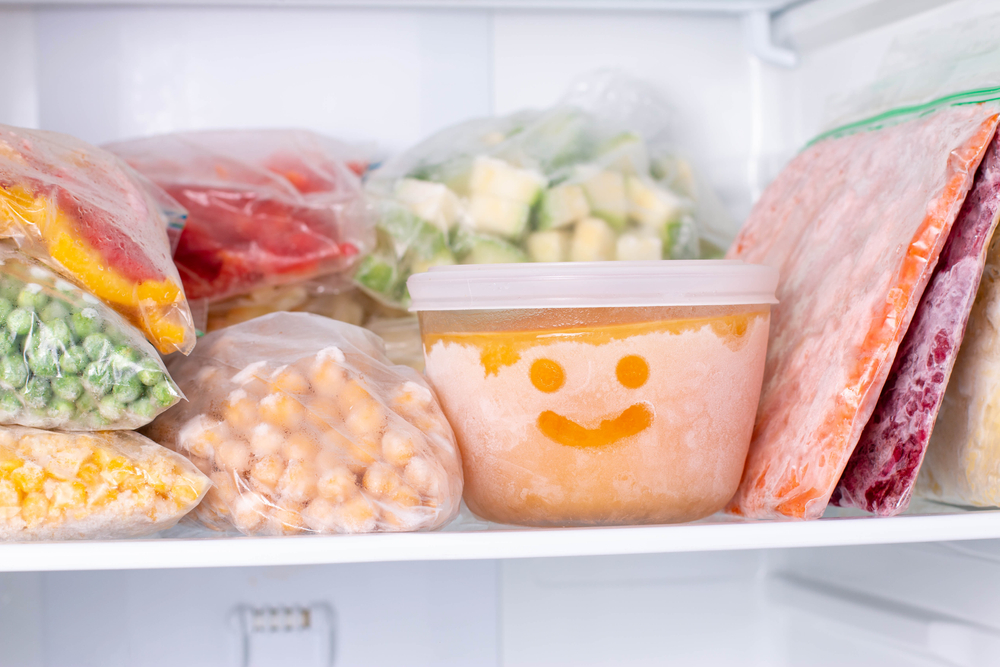
Freezing leftovers is an excellent way to reduce food waste and save money by making your meals stretch further. Instead of letting leftovers go to waste, portion them into containers and freeze them for future meals. This method not only ensures that you always have a homemade meal ready but also minimizes the need for single-use packaging from takeout or pre-made frozen meals. It’s a simple habit that can make a big difference in a zero-waste kitchen.
Reuse and Refill Containers
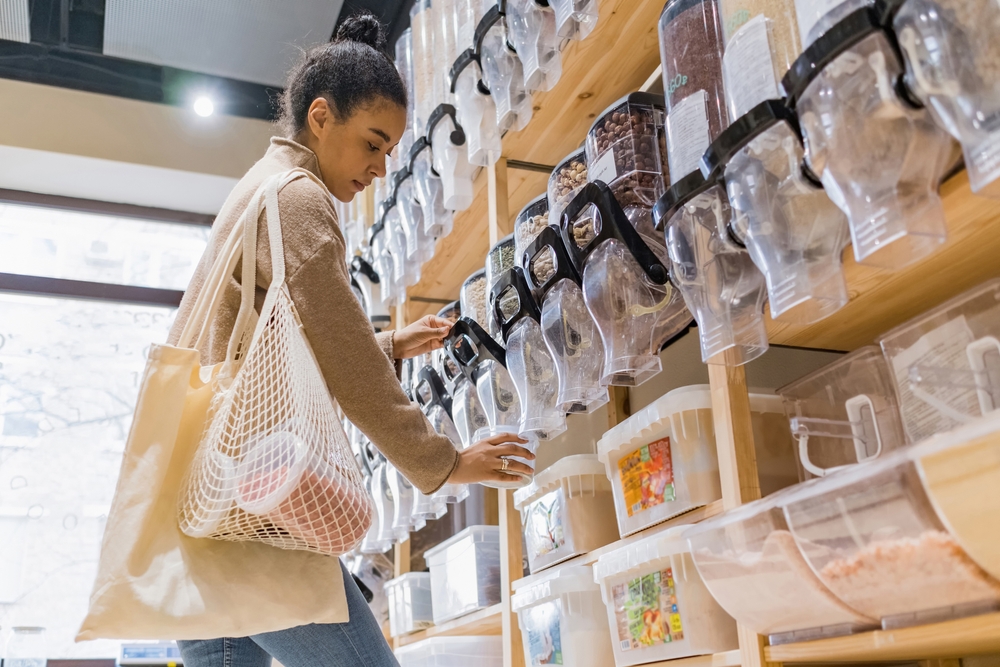
Opt for products that come in refillable containers or visit stores that allow you to refill your own. This approach reduces the need for single-use packaging and often costs less in the long run. Many bulk stores offer discounts when you bring your own containers, making it a budget-friendly way to shop. Reusing and refilling containers is a practical step toward reducing waste and saving money in your kitchen.
Practice Mindful Shopping

Mindful shopping involves making deliberate choices to buy only what you need, which helps reduce both food waste and unnecessary purchases. By sticking to a shopping list and avoiding impulse buys, you can save money and prevent items from going to waste. This practice also encourages you to choose products with minimal packaging or that are more sustainable. Mindful shopping is a key habit for maintaining a zero-waste kitchen on a budget.
This article originally appeared on RetailShout.
More From RetailShout
10 New and 16 Returning Items Of The Week At Trader Joe’s (11/17 – 11/25)

Trader Joe’s has once again brought an exciting lineup of new and returning seasonal favorites to their shelves, just in time for the holidays. From savory showstoppers to sweet indulgences, the November 17 – 25 collection is something to look forward to. Read More.
15 Affordable Aldi Finds to Keep Your Pantry Full This November
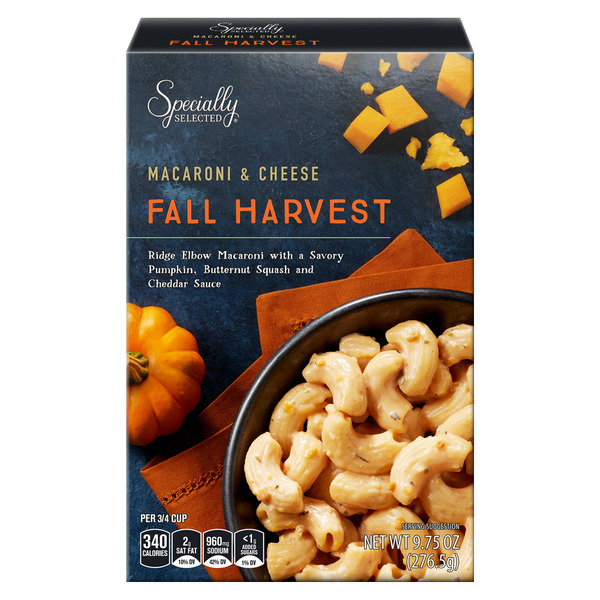
Aldi’s shelves are packed with affordable finds that bring seasonal flavors and comfort food vibes without stretching your budget. This November, there are some seriously good picks—from cozy drinks and snacks to hearty meal starters and sweet treats—all ready to make meal planning and snacking easier. Read More.
12 Essential Costco Buys Under $20
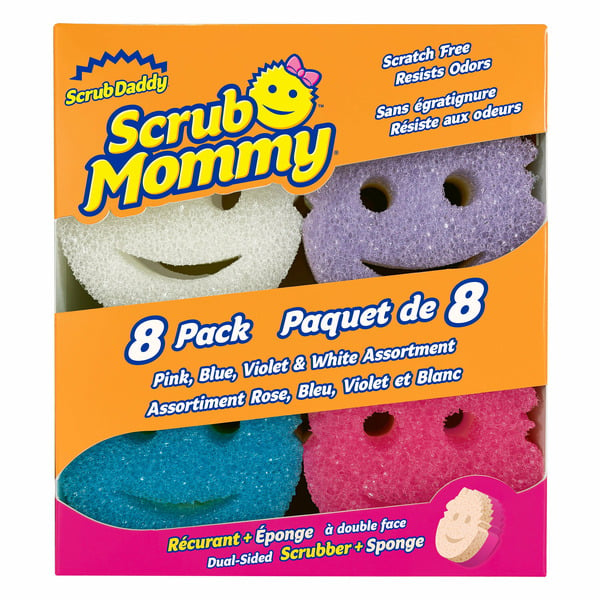
Costco is the go-to store for finding incredible deals, and you don’t need to spend a fortune to snag some great items. From household essentials to tasty snacks, Costco offers high-quality products for every budget. Read More.




